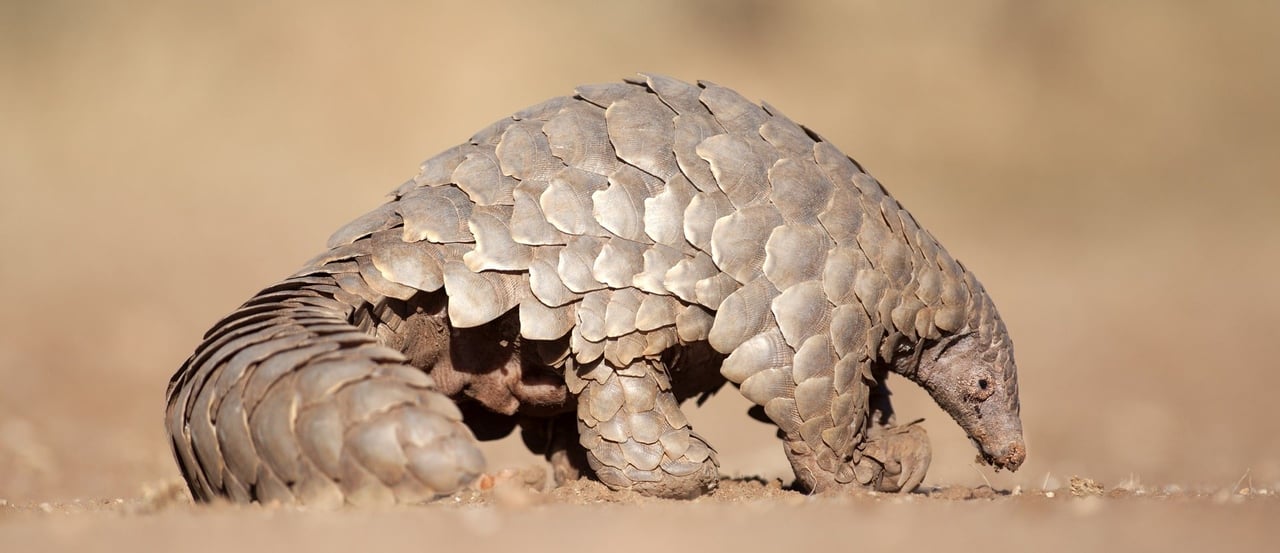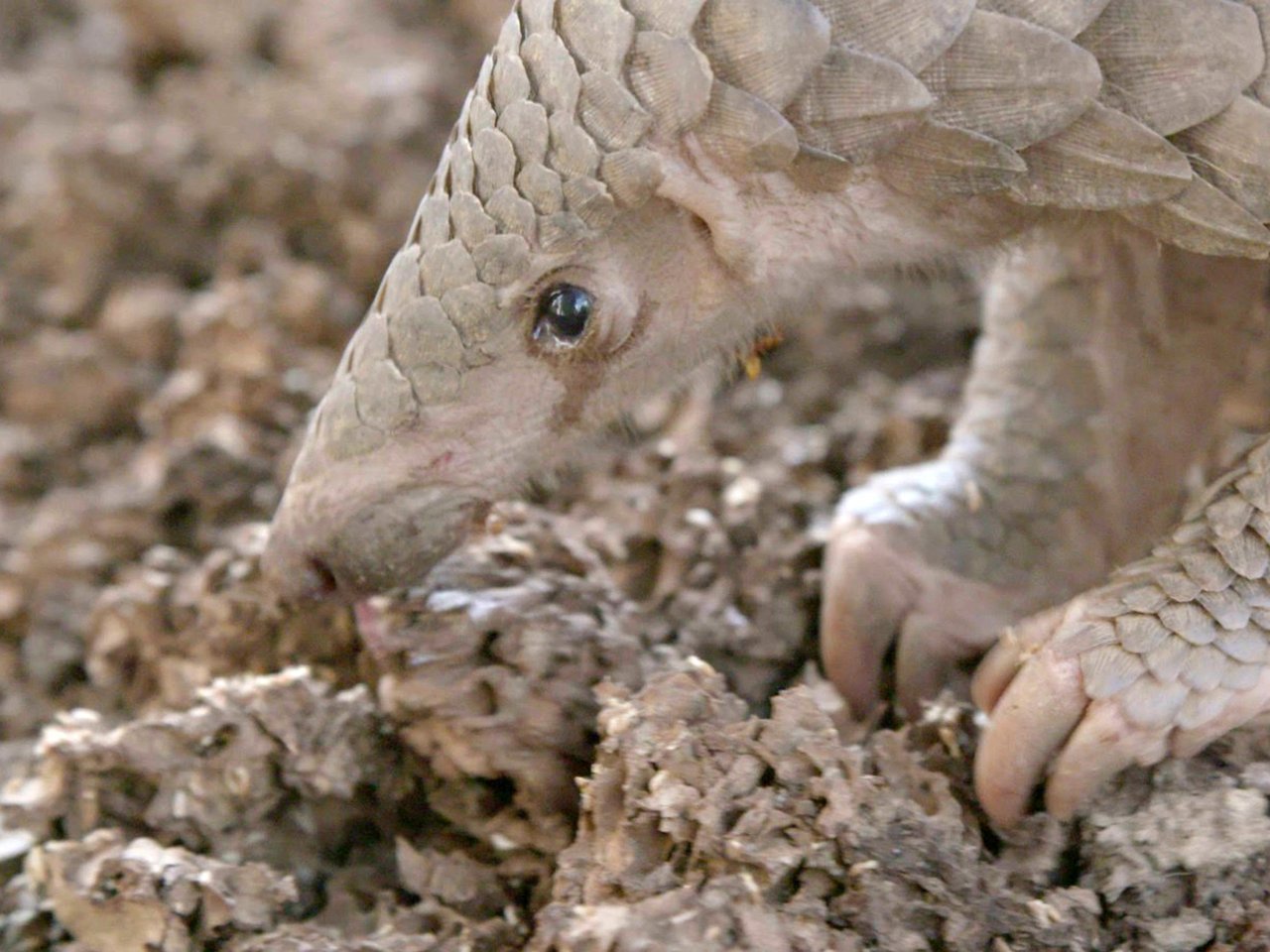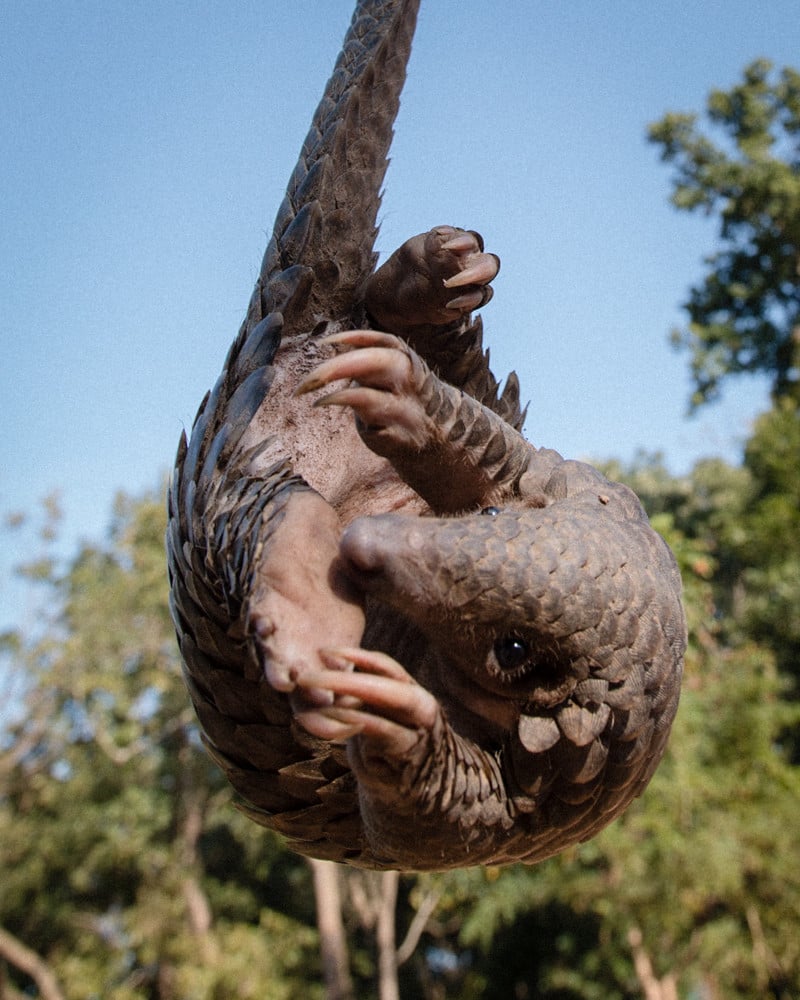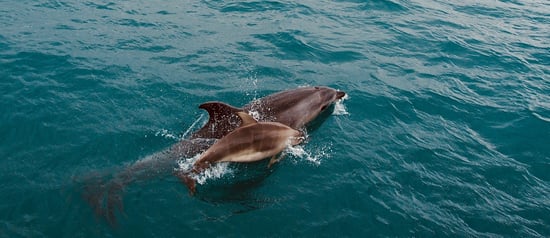Suffering at scale
Read our 'Suffering at scale' report and learn more about pangolin poaching for the traditional medicine trade.

Pangolins are solitary, primarily nocturnal animals – so there’s a good chance you aren’t too familiar with them.
They look pretty cool with their scale-covered bodies, which acts like a suit of armour to protect them – but a pangolin’s biggest threat isn’t a predatory animal, it’s humans.
The name, “pangolin”, is derived from the Malay word “pengguling”, which loosely translates to “something that rolls up” – and the name is pretty literal, because that’s how they defend themselves. When feeling threatened, the small mammals roll up in a ball, so only their scaly suit of armour is exposed. You may have seen an echidna or armadillo doing the same thing!
Read our 'Suffering at scale' report and learn more about pangolin poaching for the traditional medicine trade.
Global wildlife trade is an inhumane industry that cruelly exploits our planet’s wildlife for financial gain.
Ending the wildlife trade won’t only protect animals, it will help protect people and the planet, too.
Pangolin scales are made of keratin, the same protein that makes up our own hair and nails. They cover almost their whole body, except the underside, and make up roughly 20% of a pangolin’s body weight.
Also similar to echidnas, pangolins have no teeth, and long sticky tongues to catch their food. Their tongues can be up to 40cm long! And they love to eat ants. They are insectivorous, so their diet also includes termites, larvae and other small insects and they can eat up to 70 million insects each year! This makes them a great natural pest controller.
Officially there are eight species of pangolin. Four species can be found in Africa and four species can be found in Asia. However, in early 2025 a new species of Indo-Burmese pangolin was identified by scientists who were conducting routine examination of pangolin scales seized in India. Depending on species, they can weigh from 1kg to 3.3kgs and measure 85cm to 1.8m nose to tail.

Pangolins are the most trafficked mammals in the entire world. More than 1 million are estimated to have been killed and traded between 2000 and 2013. All species of pangolins are featured on the IUCN Red List of Threatened Species, ranging from vulnerable to critically endangered, on par with rhinos and tigers.
Ending the wildlife trade won’t only protect animals, it will help protect people and the planet, too.
The thing that makes pangolins so unique, is what they’re hunted for – their scales. Once a pangolin is mercilessly killed, their scales are sold on the black market. Sadly, one pangolin is the equivalent to four month’s income for a pangolin hunter in rural India. Driven by the demand for use in traditional medicine, pangolins are being exploited for commercial gain, in a practice that is both inhumane and unsustainable.
Particularly in China and Vietnam, pangolin scales are thought to have curative properties. But they’re made of keratin, the same thing as our own fingernails and hair, and have no proven medicinal value. In some countries, pangolin meat is also considered to be a delicacy, with the scales used as decorations for rituals and jewellery.
To keep up with black market demand, pangolins are hunted and slaughtered cruelly where they endure immense suffering. Their natural defence mechanism, to curl up into a ball, makes them easy for a human hand to grab. They are often smoked and dragged out of trees and burrows, bludgeoned with clubs and machetes and then boiled, often alive, for their scales.


We carried out a two-year study into pangolin hunting in Assam, India, to gain a deeper understanding into how and why pangolins are still so highly sought after on the black market. The report Suffering At Scale – pangolin poaching for the traditional medicine trade outlines our findings.
To protect pangolins from the unimaginable suffering they endure we are calling for:
By keeping the pressure on and working together, we can save the pangolins from extinction and help these gentle, shy creatures live in peace and without suffering.

Join thousands of animal lovers fighting to protect wildlife and give farmed animals good lives. Sign up now to receive emails with all the ways you can help.
Sign up